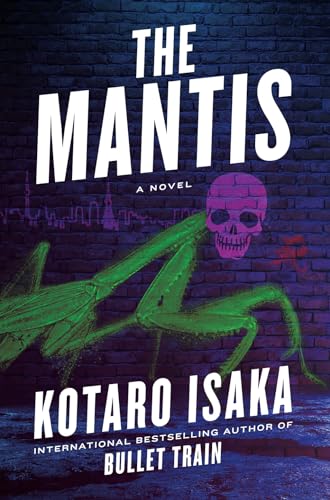The Mantis: A Novel

“The story is a fascinating one, filled with moments of excitement and flashes of humor . . .”
What happens when a contract is put out on a hit man and the assigned killer is supposed to be the target of that hit man? How can you kill someone years after your own death? These bizarre questions are at the heart of Kotaro Isaka’s humorous thriller, The Mantis.
Kabuto has a mundane job in an office supply company. He has a wife he both loves and fears and a good relationship with his teenage son, Katsumi. He is also a hired assassin. Kabuto’s employer is “the doctor,” who cloaks his kill orders in medical terminology: killings are “surgeries,” Kabuto’s job is “treatment.” Kabuto Is tired of killing and doesn’t want to add “any more things that I wouldn’t be proud of telling my kid.” When Kabuto tells the doctor he doesn’t want to kill anymore, the doctor threatens his family. One does not leave the doctor’s employ alive.
When he isn’t working for the doctor, Kabuto uses his physical strength and experience to rescue people who are being bullied. When threatened or when he sees that others are being threatened, this seemingly meek man has the powers of a comic book hero.
Kabuto is also tired of his loneliness. He seeks friendship and briefly finds it with Nanomura, a department store security guard. Kabuko isn’t sure what friendship means, but wants to act like a friend to Nanomura. The men get closer until they receive orders to kill each other. Nanomura also wants to get out of the killing business but has to kill Kabuto to protect his family from the doctor’s vengeance. The two friends are forced by circumstance to battle each other.
The final, and strongest section of the novel takes place ten years later. Katsumi now has a wife and child but is intent on understanding better his father’s life. Father’s and son’s narratives and voices alternate as Katsumi witnesses his father’s last act of foiling evil.
The story is a fascinating one, filled with moments of excitement and flashes of humor; however, there is a stylistic flatness that made reading the book less pleasurable than it should have been given the clever premise and vibrancy of the story. It is not clear whether it is Isaka’s intention or the fault of the translator. The story could have used more vivid telling.
The volume also contains an 18-page excerpt from another Isaka novel, Three Assassins.